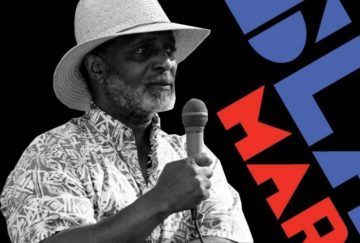Robin Kelley in Boston Review:
 The inspiration to bring out a new edition of Cedric Robinson’s classic, Black Marxism: The Making of the Black Radical Tradition, came from the estimated 26 million people who took to the streets during the spring and summer of 2020 to protest the killings of George Floyd, Breonna Taylor, Ahmaud Arbery, and the many others who lost their lives to the police. During this time, the world bore witness to the Black radical tradition in motion, driving what was arguably the most dynamic mass rebellion against state-sanctioned violence and racial capitalism we have seen in North America since the 1960s—maybe the 1860s. The boldest activists demanded that we abolish police and prisons and shift the resources funding police and prisons to housing, universal healthcare, living-wage jobs, universal basic income, green energy, and a system of restorative justice. These new abolitionists are not interested in making capitalism fairer, safer, and less racist—they know this is impossible. They want to bring an end to “racial capitalism.”
The inspiration to bring out a new edition of Cedric Robinson’s classic, Black Marxism: The Making of the Black Radical Tradition, came from the estimated 26 million people who took to the streets during the spring and summer of 2020 to protest the killings of George Floyd, Breonna Taylor, Ahmaud Arbery, and the many others who lost their lives to the police. During this time, the world bore witness to the Black radical tradition in motion, driving what was arguably the most dynamic mass rebellion against state-sanctioned violence and racial capitalism we have seen in North America since the 1960s—maybe the 1860s. The boldest activists demanded that we abolish police and prisons and shift the resources funding police and prisons to housing, universal healthcare, living-wage jobs, universal basic income, green energy, and a system of restorative justice. These new abolitionists are not interested in making capitalism fairer, safer, and less racist—they know this is impossible. They want to bring an end to “racial capitalism.”
The state’s reaction to these protests has also brought us to the precipice of fascism. The organized protests in the streets and places of public assembly, on campuses, inside prisons, in state houses and courtrooms and police stations, portended the rise of a police state in the United States. For the past several years, the Movement for Black Lives and its dozens of allied organizations warned the country that we were headed for a fascist state if we did not end racist state-sanctioned violence and the mass caging of Black and brown people. They issued these warnings before Trump’s election. As the protests waned and COVID-19 entered a second, deadlier wave, the fascist threat grew right before our eyes. We’ve seen armed white militias gun down protesters; Trump and his acolytes attempt to hold on to power despite losing the presidential election; the federal government deploy armed force to suppress dissent, round up and deport undocumented workers, and intimidate the public; and, most recently the violent insurrection at the U.S. Capitol by members of the alt-right, racists, Neo-Nazis, and assorted fascist gangs whose ranks included off-duty cops, active military members, and veterans. The threat of fascism is no longer rhetorical, a hollow epithet. It is real.
More here. (Throughout February, at least one post will be dedicated to honoring Black History Month. The theme this year is: The Family)
